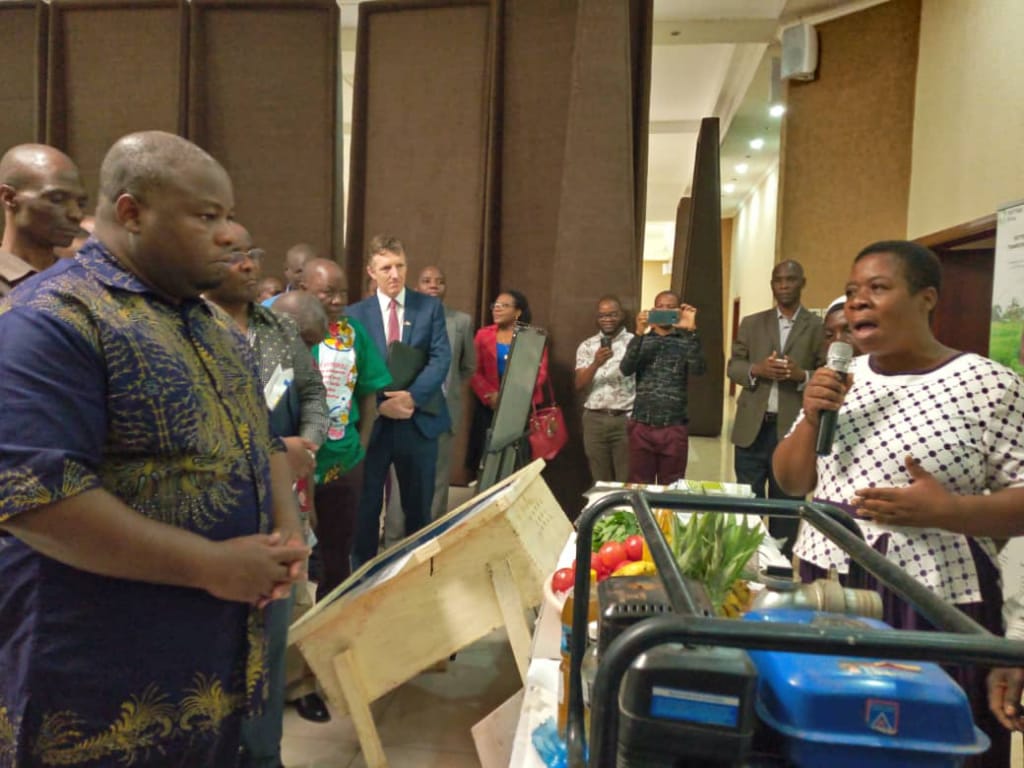
Agriculture
Nankhumwa hails KULIMA BETTER project for empowering local farmers
February 17, 2020 / Wahard Betha

Minister of Agriculture, Irrigation and Water Development Kondwani Nankhumwa has hailed the Kutukula Ulimi m’Malawi (KULIMA) project being implemented by an international civil society organization Self Help Africa and its partners saying it is assisting the government in overcoming challenges that Malawi’s agricultural sector is facing.
The Minister made the remarks yesterday in Lilongwe during the learning event of the project, which was organized by Self Help Africa Malawi.
Nankhumwa said the sector is facing challenges such as dependency on rain fed agriculture, post-harvest losses, limited agricultural diversification, small land holding sizes, land degradation, lack of formal markets, among others.
He said: “I commend the KULIMA project for empowering local farmers with relevant knowledge through conducting the Farmer Field School, an approach that is playing an important role in improving and strengthening the delivery of extension services in the 10 KULIMA Project districts.”
“The approach allows farmers to experiment with new agricultural technologies without putting their own food security at risk.”
He said weak delivery of agricultural extension services due to among other factors, high farmer and extension staff ratio and ineffective coordination is one of the major problems affecting the country’s agricultural sector as it weighs on progress on dissemination and adoption of recommended farming technologies by farmers.
“The situation has been worsened by the increasing prevalence of pests and diseases, including the emergence of the Fall Armyworm which has impacted smallholder farmers across all regions,” he said.
He, therefore, hailed the Farmer Field School approach as an innovative extension approach that is empowering farmers to identify their problem and find solutions through learning.
Self Help Africa is implementing the KULIMA Better project in 10 districts across the country in coordination with four organisations namely Adventist Development and Relief Agency, Actionaid, Plan International and Evangelical Association of Malawi with funding from the European Development Fund.
The objective of the project is to contribute to increased growth of Malawi’s agricultural sector, expand commercial agriculture base and improve food and nutrition security.
Nankhumwa also commended the project for its efforts to integrate gender, nutrition and financial inclusion through the Farmer Field Schools approach in which it provides training to farmers on various topics.
Under the KULIMA BETTER project, a total of 4, 970 Farmer Field Schools have been established and are going through a season long training focusing on different study topics which among others include integrated pest and disease management; crop variety performance; integrated soil fertility management and soil and water management.
The learning events are conducted to ensure that the lessons drawn from the Farmer Field School studies are shared with the wider community and stakeholders at community, district and national levels.
This year’s National Learning Event was conducted under the theme of ‘Finding local solutions to sustainable agricultural production, diversification and climate change through Farmer Field Schools.’
Agriculture is the main stay of the economy of Malawi contributing close to a third of the country’s GDP and employing majority of the labour force.































